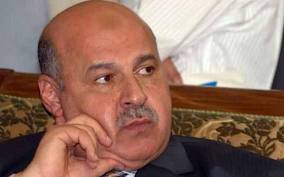Russia’s Foreign Minister Sergey Lavrov said, on Wednesday, that his country has proposed an offer to Egypt, Sudan and Ethiopia to provide technical assistance regarding the Ethiopian dam crisis.
The Russian proposal came following a meeting of foreign ministers as part of the African Union (AU) Troika Committee, which includes Egypt, South Africa and the Democratic Republic of Congo (DRC).
“We have offered the participants in the Grand Ethiopian Renaissance Dam (GERD) negotiations assistance, including technical assistance,” Lavrov said, “There are things that can be helpful. They know that well”.
He added, “The US also offered the three countries its services. Several meetings were held there. and we welcomed the progress that has been made.
Lavrov noted that it is encouraging that the parties involved in the Ethiopian dam negotiations have agreed to accelerate contacts between the responsible ministers.
The minister said that, as part of the UN Security Council discussions on the dam’s building, Russia has urged for the negotiations to be completed soon. This would take into account an “overall coordination of approaches based on current international law and taking into account the interests of all parties concerned”.
In March, Russian Foreign Ministry Spokesperson Maria Zakharova said that Moscow had offered to mediate a solution to the crisis between Egypt and Ethiopia. She highlighted that Russia has close ties with both Cairo and Addis Ababa.
In a press conference, Zakharova said, “We are with all the parties to find a compromise that satisfies everyone, and that is on the principle of equality and in accordance with international laws and norms.”
In October 2019, Russia’s envoy to the Middle East and North Africa, Mikhail Bogdanov, announced his country’s readiness to mediate between Ethiopia and Egypt regarding the dam’s building on the River Nile. Bogdanov’s comments came during the first Russian-Afro Summit held, in Sochi, in October 2019.
GERD negotiations between Egypt, Sudan and Ethiopia continued for a fifth day on, with still no agreement reached on issues regarding its filling and operation.
Egypt said Ethiopia’s adherence to its “strict” stances concerning the technical aspects would make the chance of reaching a consensus less likely. Bilateral meetings are expected to take place between individual countries with observers on Wednesday.
The new current round of negotiations, which are due to end on 11 July, started on Friday under the sponsorship of the AU, which is currently headed by Presidency holder, South Africa. The AU’s Assembly Bureau and representatives from its member states, the US, and the European Union are also participating in the meetings.
At the end of the fifth day, the three countries had agreed to put forward their reports to the tripartite ministerial meeting.
During a phone call with UK Foreign Secretary Dominic Raab on Tuesday, Egypt’s Foreign Minister Sameh Shoukry stressed his country’s rejection of any unilateral action on the dam. The minister stressed that a comprehensive, fair and well-balanced agreement between the countries involved in negotiations should be reached first.
During the phone call, Shoukry and Raab also discussed GERD developments, along with other regional topics.
Mohamed Sebaey, Spokesperson for Egypt’s Ministry of Water Resources and Irrigation, said that the Ethiopian side remains intransigent in the Ethiopian dam negotiations. This is despite Egypt’s flexibility and submission of more than one point of view during the negotiations.
During a televised phone interview, Sebaey noted that Egypt had pledged to formulate, in the form of a document, the guarantee that Ethiopia generates 85% of its needs during the worst drought periods.
Sebaey stated that the differences during negotiations on two basic technical points, namely: how to deal with the drought period during the dam’s filling and operation; what will occur in the event of a natural drought, in addition to the industrial drought that the dam will cause.
The spokesperson noted that resolving these points will solve 95% of the current problems faced in the negotiations. The Ethiopian side consistently to its lack of commitment to any guarantees or protect Egypt from drought.
Sebaey added that the meetings that have taken place over the past five days have worked to bring views closer.
The previous round of negotiations between the three countries, which were held between 9 and 17 June, failed to produce an accord. This was attributed to Ethiopia’s refusal to enter into a legally binding agreement and its announcement that it will begin filling the dam in July, with or without the approval of the two downstream countries.
In response, Egypt appealed to the UN Security Council to intervene to resolve the stalemate and to preserve international peace and stability. The Security Council urged the three countries to avoid adopting any unilateral actions and conduct talks on the basis of mutual understanding




